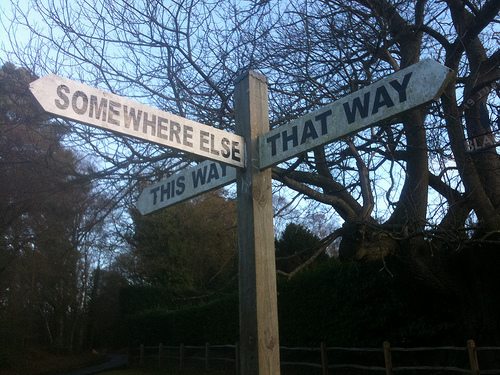Strategy is about making choices among realistic options to use your resources to achieve a business goal. A good way to test whether you have a strategy is whether you can point to the options you have chosen between or among and explain why you made the choice you did. For example, “We are choosing to invest our scarce marketing resources for the next six months in expanding our business with our top 10 clients rather than investing those resources in opening up a new business line or mounting a new social media campaign for our overall brand because …”
If you find that you are having a lot of one-off discussions in which someone is asking “should we take a particular action or not,” you probably don’t have a strategy. Making a decision to do something or not do it may be useful and even important for other reasons (see previous post), but it doesn’t add up to a solid business strategy.

It is possible for a manager to be quite decisive in the sense of making decisions quickly and with certainty but to have each of those decisions made in a strategic vacuum such that they don’t add up to a strategy, or worse, send conflicting signals. We have all seen this happen and may even have done it ourselves. It’s easier to make an argument for or against doing some particular thing than it is to put in the hard work of framing important choices and evaluating them, so we tend to take the easy way out.
Just remember that strategy equals choosing. In their book, Decisive: How to Make Better Choices in Life and Business, the Heath brothers (Chip and Dan) claim that simply adding one additional alternative to choose from makes it more likely you will make a good strategic decision. Making choices enforces a discipline of giving reasonable alternatives a fair evaluation by comparing them to each other against the same criteria. This encourages focused debate and improves longer term commitment to the choice because multiple views get a fair hearing and the criteria for the final choice are transparent.
Watch out for last-minute cop-outs like deciding to do a little of each option. This isn’t really a choice and it rarely produces good results. You can never be certain you have made the right choice of course, so you should take stock of your strategy periodically to see whether your choices are producing the results you need. If you aren’t getting the results, then frame new choices based on what you have learned and make a new choice among these alternatives.

6 responses to “Strategy Is About Making Choices, Not Just Decisions”
The article resonates with me.
You are right that we sometimes mix up decision making with strategy.
I also can attest to the mistake of choosing to do a bit of everything rather than making strategic choices – ben there done that!
I look back on my company World Informatix strategy document from January 2013 to now and notice that the actions I am pursuing now are a marked departure and I have given up some lines of business or specific areas to focus on key strengths.
[…] don’t add up to a great product. If you’re having trouble with ideas in isolation, try making it a strategic decision by choosing among choices instead of making a series of binary […]
Yes, making choices is in some ways quite liberating and lets you focus on your strengths. Good point.
do you have a twitter that i can follow
Just click on the twitter icon on the website http://www.gileshopkins.com
[…] Make a strategic choice. Business strategy is about making choices. CVS is making a strategic choice between real options. Much of the press coverage has focused on […]